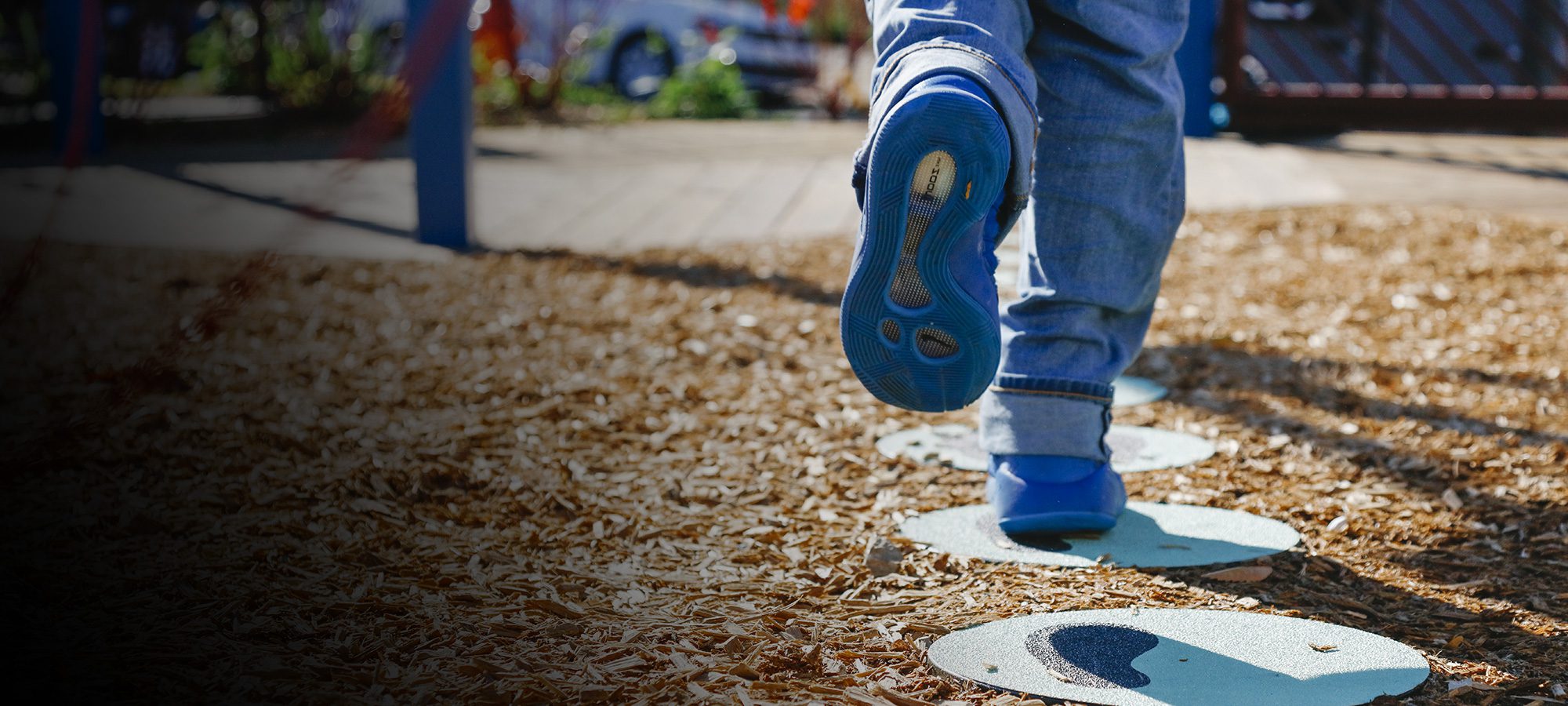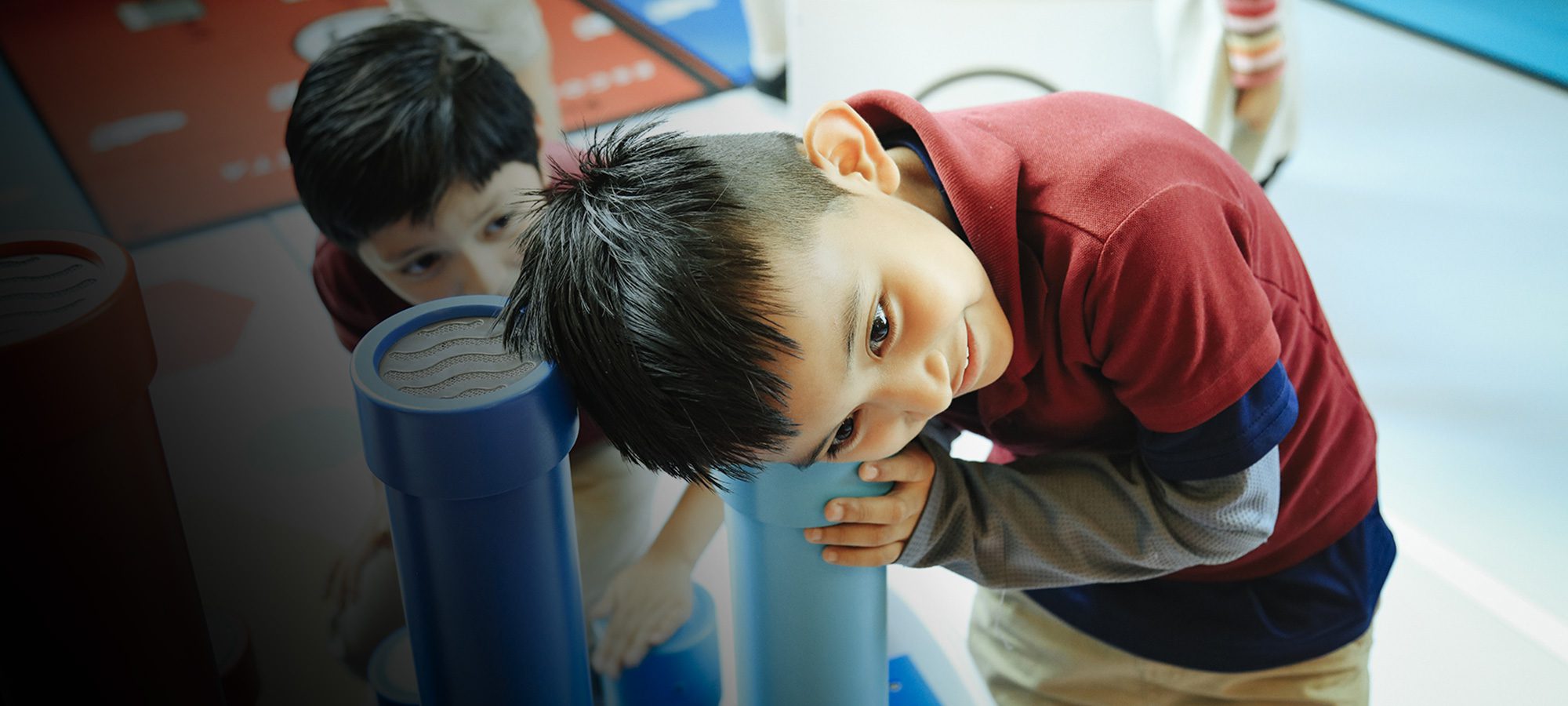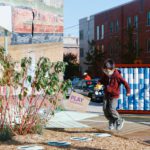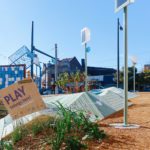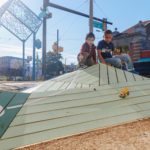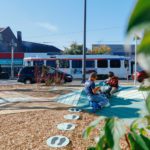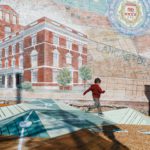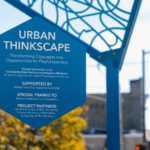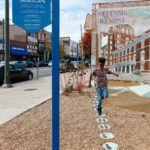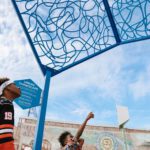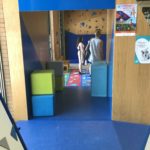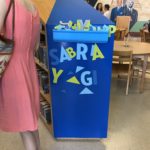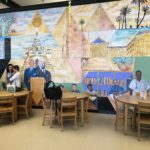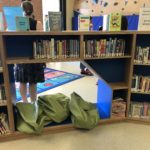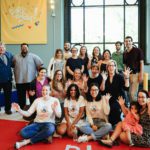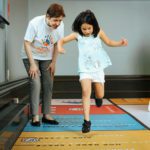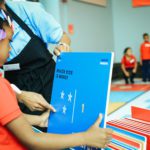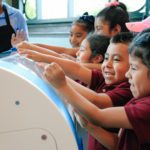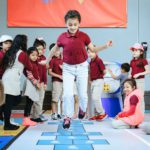OVERVIEW
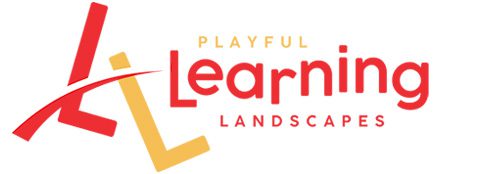
At the intersection of the global cities movement and the movement to optimize early education in and out of school, lies Playful Learning Landscapes. Twenty-first Century Learning models will need to embrace a breadth of skills that allow children to succeed in a world of increasing uncertainty and change. Projections suggest that by 2050 over 70% of the worlds’ children will be living in urban areas and that most of these children – over 825 million – will reach adulthood without even the basic secondary skills required to meet the workplace of today and tomorrow.
The general response to this inequality has been to enrich education through high quality universal preschools. This is critical and the research suggests that it catapults children into better school readiness and beyond. Yet – it is not enough. Learning today occurs in and out of the classroom and to date we have done little to capitalize on out of school time as a resource for children everywhere. Children spend only 20% of their waking time in school. What are we doing with the other 80%?
Learning Landscapes is one answer to that question that dovetails with Itai Palti’s Conscious Cities movement. It asks how we can reinvent everyday experiences as fun learning opportunities that organically prompt the kinds of interactions that help children thrive. It all started with a simple question: when is a bench not a bench? How can we literally change the architectural design of benches to infuse them with learning potential by adding puzzles that build science, technology, engineering and math (STEM) skills? How can we change the everyday to make it more extraordinary.
Thus far, Learning Landscapes has transformed a park with a pop-up experience designed to showcase the science of how brains learn (Ultimate Block Party). We transformed supermarkets in Supermarket Speak to heighten caregiver-child interactions. With the West Philadelphia Belmont Civic Association, we morphed a bus stop into a playful learning plaza in Urban Thinkscape. We mounted a life-sized human board game designed to spark STEM learning at the Philadelphia Please Touch children’s museum, we collaborated with LEGO to design the PLAYWALL experience and in Playbraries, we worked with designers (Studio Ludo) and the community to create the next generation of libraries. And this is but the beginning. The City of Seattle is poised to do safe sidewalks to school imprinted with Playful Learning Landscape Designs, Chicago is reinventing 3 neighborhoods through Learning Landscapes, and local hospitals are engaging us to think about how we can remake hospital waiting rooms.
On this site, we have collected some of the papers we have written, the videos we have compiled and the photos we have taken as our team thinks about a new model of fun learning for 21st Century families.
Click Here to Visit the Website
THE CONCEPT
Learning Landscapes: Playing the Way to Learning and Engagement in Public Spaces
Children from under-resourced communities regularly enter formal schooling lagging behind their peers. These deficits in areas such as language development, reading readiness, and even in the kind of spatial skills that predict later mathematical knowledge, may persist throughout the lifespan. To address such gaps, policymakers have focused largely on schooling as the great equalizer. Yet, children only spend 20% of their waking hours in school. How can developmental scientists and educators address this “other 80%” for the benefit of children’s development? One answer is the Learning Landscapes initiative, which involves crafting carefully planned play experiences that focus on learning outcomes, particularly for children and families from under-resourced communities.
Read Full Paper
Learning Landscapes: Vision and Status to Date
We have a global learning crisis. With business as usual, by 2030 half of the world’s youth – over 800 million young people – will not have the skills they need to succeed in work and life. The aim of Learning Landscape is to transform everyday places into learning opportunities in order to maximum the “other 80%” of time children spend outside of school and to augment what goes on in school.
View Full Powerpoint Presentation
Listen to a Learning Landscapes Overview Podcast from Brookings Institute
Twenty First Century Skills: Becoming Brilliant
Brookings Blog
Podcast
THE LEARNING LANDSCAPES PROJECTS
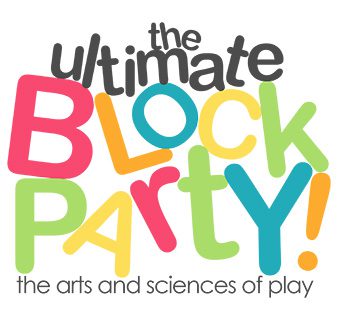
THE ULTIMATE BLOCK PARTY
The Ultimate Block Party aims to create a multi-pronged social movement that champions the importance of play and playful learning in children’s lives. We seek to ensure that all children are provided with competitive skills for the 21st century global world and to build a public groundswell about the value of play for fostering lifelong learning in the sciences and the arts. Our mission is to affect policy about children and the way we deliver education in our society by showing off how children learn skills and competencies like the 6Cs in a pop-up event highlighting the science of learning.
Click Here to Watch a Video!
Click Here to Visit the Website
Playing With Ideas: Evaluating the Impact of the Ultimate Block Party, a Collective Experiential Intervention to Enrich Perceptions of Play
Parental attitudes shape play opportunities afforded to children in home, community, and school settings. This study presents evaluation of an intervention designed to enrich parent’s conception of play and its rela- tionship with socially valued skills and capacities.
Read Full Paper
The Ultimate Block Party: Bridging the Science of Learning and the Importance of Play
We are in the midst of a crisis. A play crisis. Play is a rapidly diminishing commodity for today’s children. From 1981 to 1997, children’s playtime dropped by a staggering 25% (Hofferth & Sandburg, 2001). A more recent analysis shows that this low-level of play was maintained between 1997 and 2003, but that during this time, children spent more time studying and less time outdoors, playing sports, and involved in passive leisure activities (Hofferth, 2009).
Read Full Paper
SUPERMARKET SPEAK
The supermarket can be so much more than a place to buy food. There’s learning in those aisles. Filled with labels and signs, numbers on aisles and cash registers, this project was designed as a low cost intervention to spark adult-child conversations. Since conversations are the golden foundation for learning, supermarket speak becomes a vehicle for enriching language in our everyday spaces. The Too Small To Fail initiative even tried this technique in laundromats and in playgrounds.
Check out another Supermarket Speak Video!
View the Supermarket Speak Toolkit
Read an Article on Supermarket Speak
URBAN THINKSCAPE
Urban Thinkscape brings the benefits of playful learning, which combines the enjoyable nature of play with a learning goal, to a community, public setting of a bus stop. Examples include puzzles at bus stops that stimulate spatial skills; movable parts on park benches that become opportunities for exploring language, color, and numbers while on-site signage and this website connect families to additional information and resources about the links between play and learning. Sponsored by the Wm. Penn Foundation and Kaboom with lead designer Itai Palti.
Instead of viewing streets and bus stops merely as conduits from point A to B, Urban Thinkscape creates connections between these shared everyday spaces and the people who occupy them.
Check out the Website
Check out this Video on Urban Thinkscape
Check out another Video on Urban Thinkscape
Brookings Blog on Urban Thinkscape
Newspaper Article on Urban Thinkscape
Urban Thinkscape Photos:
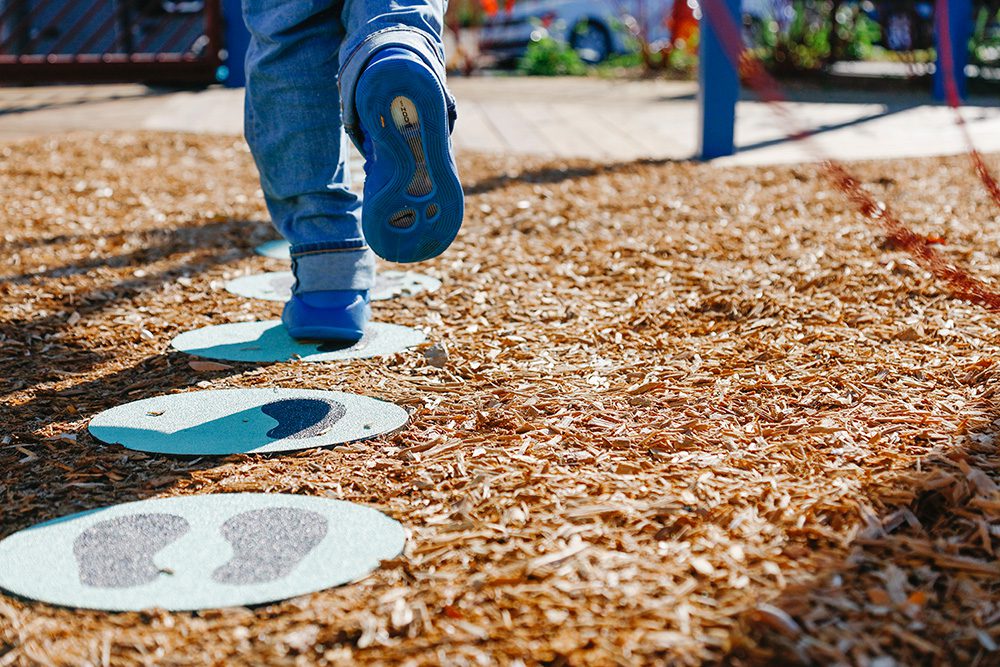
Photo: Sahar Coston-Hardy
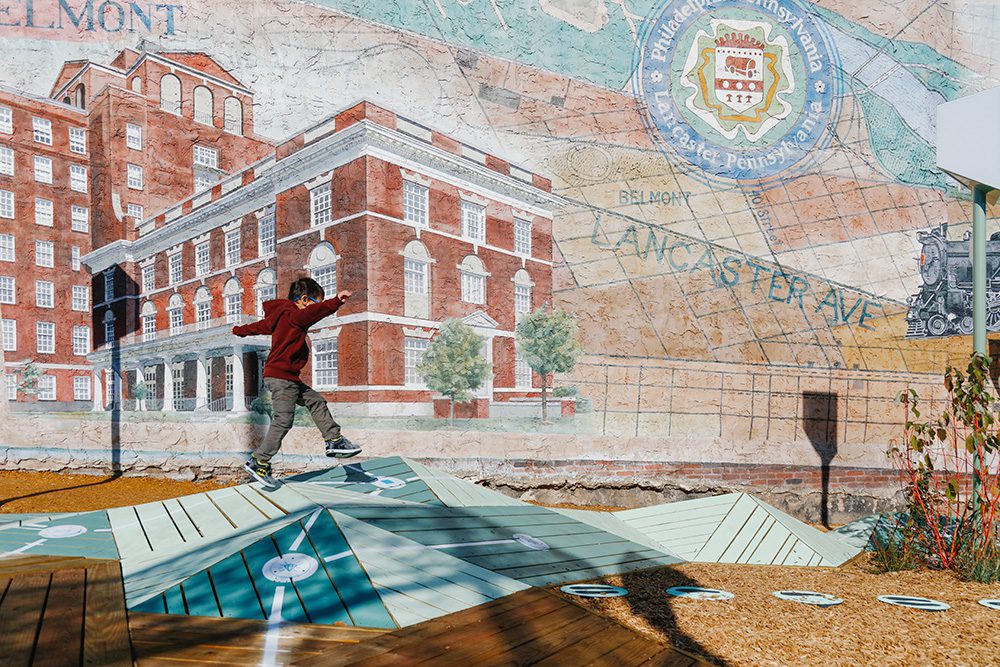
Photo: Sahar Coston-Hardy
Click on a thumbnail below to view more Urban Thinkscape photos:
PLAYBRARY
A library is a perfect spot to enhance with playful learning opportunities. Reading can come alive when it is nested into opportunities for dramatic play and play with words can gain currency on a new kind of rock climbing wall. In Playbrary, we take early learning in language, literacy and STEM to new design levels where seating becomes tangram puzzles and children engage in language games. Sponsored by the Wm. Penn Foundation with lead team members DIGSAU, Studio Ludo, and Erector Sets, Inc.
Brookings Blog on Playbrary
Playbrary Photos:

Photo: Sahar Coston-Hardy
Click on a thumbnail below to view more Playbrary photos:
PLAYWALL
Introduction: Inspired by Candy Chang’s Before I Die art project, the playwall asks communities how they played when they were little. This low cost intervention sponsored by the LEGO Foundation, sparked a new community conversation around play. Follow-up dialogues will bring forth the learning value of the everyday games that populated the playwall within hours of its installation.
Playwall Photos:
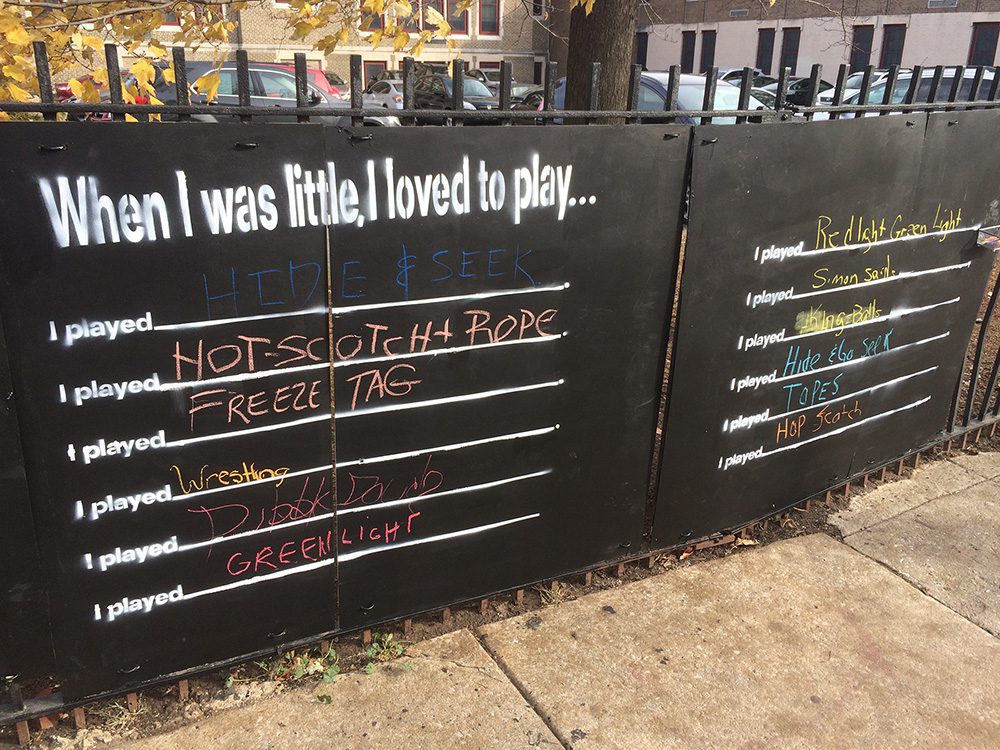

PARKOPOLIS
Imagine a human sized board game designed to maximize fun while learning about math and science. Roll the dice to get a 6 and a half or a 3 and three quarters and progress along a board with challenge cards, a new kind of hop scotch and a way to test your athleticism. Currently at the Please Touch Museum in Philadelphia and sponsored by New Profit, this board game is so much more than a game. It is a way to stimulate just the kinds of interactions that build strong skills for learning. Designer: Nabil Shahidi.
Parkopolis Photos:
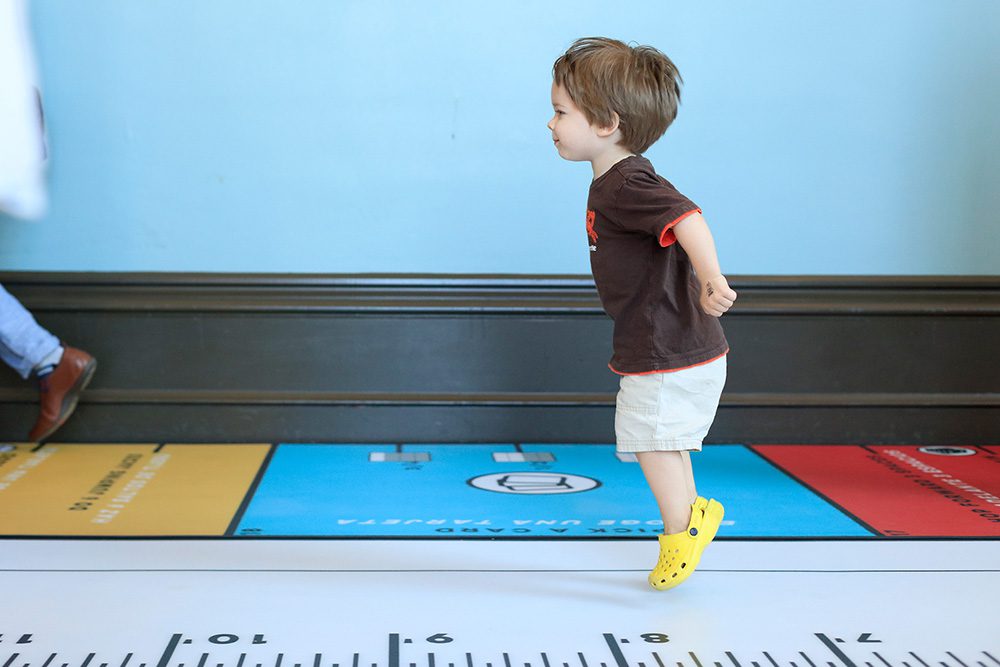
Photo: Sahar Coston-Hardy
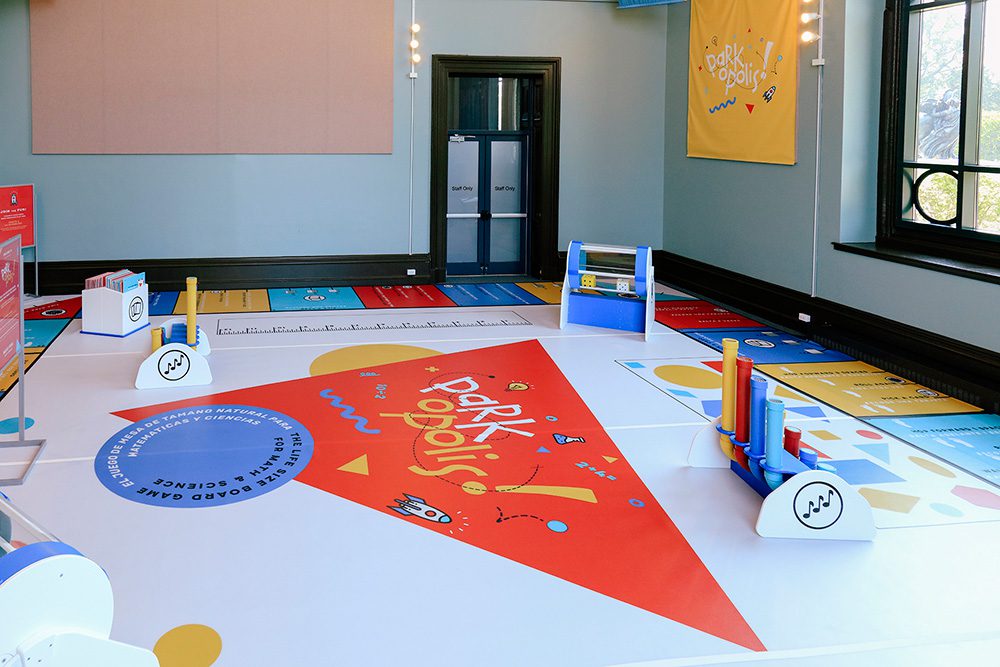
Photo: Sahar Coston-Hardy
Click on a thumbnail below to view more Parkopolis photos:
Parkopolis Video:
THE PEOPLE
 Kathy Hirsh-Pasek is the Stanley and Debra Lefkowitz Faculty Fellow in the Department of Psychology at Temple University and is a Senior Fellow at the Brookings Institution. Director of Temple University’s Infant Language Laboratory, Kathy is the recipient of the AERA Outstanding Public Communication for Education Research Award, American Psychological Association’s Bronfenbrenner Award for Lifetime Contribution to Developmental Psychology in the Service of Science and Society, the American Psychological Association’s Award for Distinguished Service to Psychological Science, the American Psychological Society’s James McKeen Cattell Award for “a lifetime of outstanding contributions to applied psychological research,” The Society for Research in Child Development Distinguished Scientific Contributions to Child Development Award and the Temple University Great Teacher Award and the University Eberman Research Award. She was a finalist for 2013 Best Professor of the year for the American Academy of Education Arts and Sciences Bammy Awards. Kathy received her bachelor’s degree from the University of Pittsburgh and her Ph.D. from the University of Pennsylvania. Her research in the areas of early language development and infant cognition has been funded by the National Science Foundation, the National Institutes of Health and Human Development, and the Institute of Education Sciences resulting in 14 books and over 200 publications. She is a Fellow of the American Psychological Association and the American Psychological Society and served as the Associate Editor of Child Development. She is the President and also served as treasurer of the International Association for Infant Studies. Her book, Einstein Never used Flashcards: How children really learn and why they need to play more and memorize less, (Rodale Books) won the prestigious Books for Better Life Award as the best psychology book in 2003. Her newest book, Becoming Brilliant: What Science tells us about raising successful children (Becoming-Brilliant.com) released in 2016, was on the NYTimes Best Seller List in both Education and Parenting. Kathy has a strong interest in bridging the gap between research and application. To that end, she was an investigator on the NICHD Study of Early Child Care, is on the Advisory Board of the Boston Children’s Museum, Jumpstart and Disney Junior and is an invited blogger for the Huffington Post. She worked on the language and literacy team for the development of the California Preschool Curriculum, is on the Core Team for the LEGO Research Network, is a member of the Steering Committee of the Latin American School for Educational and Cognitive Neuroscience, was one of the organizers of the Ultimate Block Party (www.ultimateblockparty.com) and was one of the founders of the Learning Resource Network (www.learnnow.org). Kathy is a member of the Research Council for America’s Promise, an organization started by Colin Powell, and has been a spokesperson on early development for national media like the NYTimes and npr. She tweets at KathyandRo1.
Kathy Hirsh-Pasek is the Stanley and Debra Lefkowitz Faculty Fellow in the Department of Psychology at Temple University and is a Senior Fellow at the Brookings Institution. Director of Temple University’s Infant Language Laboratory, Kathy is the recipient of the AERA Outstanding Public Communication for Education Research Award, American Psychological Association’s Bronfenbrenner Award for Lifetime Contribution to Developmental Psychology in the Service of Science and Society, the American Psychological Association’s Award for Distinguished Service to Psychological Science, the American Psychological Society’s James McKeen Cattell Award for “a lifetime of outstanding contributions to applied psychological research,” The Society for Research in Child Development Distinguished Scientific Contributions to Child Development Award and the Temple University Great Teacher Award and the University Eberman Research Award. She was a finalist for 2013 Best Professor of the year for the American Academy of Education Arts and Sciences Bammy Awards. Kathy received her bachelor’s degree from the University of Pittsburgh and her Ph.D. from the University of Pennsylvania. Her research in the areas of early language development and infant cognition has been funded by the National Science Foundation, the National Institutes of Health and Human Development, and the Institute of Education Sciences resulting in 14 books and over 200 publications. She is a Fellow of the American Psychological Association and the American Psychological Society and served as the Associate Editor of Child Development. She is the President and also served as treasurer of the International Association for Infant Studies. Her book, Einstein Never used Flashcards: How children really learn and why they need to play more and memorize less, (Rodale Books) won the prestigious Books for Better Life Award as the best psychology book in 2003. Her newest book, Becoming Brilliant: What Science tells us about raising successful children (Becoming-Brilliant.com) released in 2016, was on the NYTimes Best Seller List in both Education and Parenting. Kathy has a strong interest in bridging the gap between research and application. To that end, she was an investigator on the NICHD Study of Early Child Care, is on the Advisory Board of the Boston Children’s Museum, Jumpstart and Disney Junior and is an invited blogger for the Huffington Post. She worked on the language and literacy team for the development of the California Preschool Curriculum, is on the Core Team for the LEGO Research Network, is a member of the Steering Committee of the Latin American School for Educational and Cognitive Neuroscience, was one of the organizers of the Ultimate Block Party (www.ultimateblockparty.com) and was one of the founders of the Learning Resource Network (www.learnnow.org). Kathy is a member of the Research Council for America’s Promise, an organization started by Colin Powell, and has been a spokesperson on early development for national media like the NYTimes and npr. She tweets at KathyandRo1.
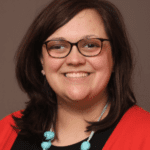 Brenna Hassinger-Das, Ph.D., is an Assistant Professor of Psychology at Pace University. Her research examines children’s play and learning in home, school, and community contexts, particularly for children experiencing poverty. Her areas of expertise encompass executive functioning, early number sense, and vocabulary acquisition. She is particularly interested in investigating the role of play and games for learning. She is committed to translating her research for use by the public through community-based research projects as well as blog posts and commentaries featured in outlets such as The Huffington Post, WHYY, and as well as additional local outlets.
Brenna Hassinger-Das, Ph.D., is an Assistant Professor of Psychology at Pace University. Her research examines children’s play and learning in home, school, and community contexts, particularly for children experiencing poverty. Her areas of expertise encompass executive functioning, early number sense, and vocabulary acquisition. She is particularly interested in investigating the role of play and games for learning. She is committed to translating her research for use by the public through community-based research projects as well as blog posts and commentaries featured in outlets such as The Huffington Post, WHYY, and as well as additional local outlets.
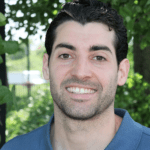 Andres Bustamante is an Assistant Professor in the School of Education at the University of California, Irvine. His research capitalizes on young children’s natural curiosity about the world by using early childhood science education as a hands-on, engaging, and interactive context to foster school-readiness skills in young children from low-income families. Specifically, he designs and implements classroom- and community-based early childhood science interventions that target domain-general learning skills such as approaches-to-learning, executive functioning, and social emotional development. His work leverages insights derived from laboratory-based experiments and analysis of longitudinal data sets to generate and test these innovative interventions. The overarching goal of his research is to bring high-quality learning opportunities—in the classroom and the community—to children and families living in poverty.
Andres Bustamante is an Assistant Professor in the School of Education at the University of California, Irvine. His research capitalizes on young children’s natural curiosity about the world by using early childhood science education as a hands-on, engaging, and interactive context to foster school-readiness skills in young children from low-income families. Specifically, he designs and implements classroom- and community-based early childhood science interventions that target domain-general learning skills such as approaches-to-learning, executive functioning, and social emotional development. His work leverages insights derived from laboratory-based experiments and analysis of longitudinal data sets to generate and test these innovative interventions. The overarching goal of his research is to bring high-quality learning opportunities—in the classroom and the community—to children and families living in poverty.
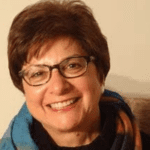 Shelly Kessler Founder and principal of SK-consultants, Shelly has over twenty-five years of experience as both a practitioner and advisory to nonprofit and philanthropic organizations nationally, as well as nongovernmental organizations globally. She has deep experience in strategy and business planning, organizational and leadership development; and program planning and assessment, as well as being a trained facilitator. From 2000-2013, Shelly was a Partner with TCC Group a national management consulting firm with offices in Philadelphia, New York and San Francisco. She headed the nonprofit strategy practice as well as being the Chief Financial Officer for the firm. While at TCC, she led numerous organizational assessment and strategic planning assignments for a broad spectrum of nonprofit organizations, philanthropies and corporate giving programs. Shelly has written a number of articles on strategic planning over the years including “The Death of Planning” for the Philadelphia Social Innovations Journal; “Funding for Impact: How to Design Strategic Grantmaking Programs,” and with Jared Raynor “When Things Fall Apart: Building Organizational Strength of Humanitarian Organizations” for TCC Group. Shelly received her Master’s Degree in International Relations from the Johns Hopkins School of Advanced International Studies and a Bachelor of Arts Degree from Brown University. Currently, Shelly is a member of the boards of Public Citizens for Children and Youth based in Philadelphia and Ultimate Block Party, a national exploration of how children learn and grow.
Shelly Kessler Founder and principal of SK-consultants, Shelly has over twenty-five years of experience as both a practitioner and advisory to nonprofit and philanthropic organizations nationally, as well as nongovernmental organizations globally. She has deep experience in strategy and business planning, organizational and leadership development; and program planning and assessment, as well as being a trained facilitator. From 2000-2013, Shelly was a Partner with TCC Group a national management consulting firm with offices in Philadelphia, New York and San Francisco. She headed the nonprofit strategy practice as well as being the Chief Financial Officer for the firm. While at TCC, she led numerous organizational assessment and strategic planning assignments for a broad spectrum of nonprofit organizations, philanthropies and corporate giving programs. Shelly has written a number of articles on strategic planning over the years including “The Death of Planning” for the Philadelphia Social Innovations Journal; “Funding for Impact: How to Design Strategic Grantmaking Programs,” and with Jared Raynor “When Things Fall Apart: Building Organizational Strength of Humanitarian Organizations” for TCC Group. Shelly received her Master’s Degree in International Relations from the Johns Hopkins School of Advanced International Studies and a Bachelor of Arts Degree from Brown University. Currently, Shelly is a member of the boards of Public Citizens for Children and Youth based in Philadelphia and Ultimate Block Party, a national exploration of how children learn and grow.
 Susan Magsamen As Senior Vice President of Early Learning at Houghton Mifflin Harcourt, Susan Magsamen focuses on HMH’s offering for the pre-K space. A learning expert, award-winning writer and program architect, Susan is also founder of Curiosityville, an interactive personalized learning environment for children aged three to eight, which was acquired by HMH in May 2014. With over 30 years’ experience in developing effective learning programs rooted in the science of learning, Susan is an active member of the brain sciences research community. She currently serves as a Senior Advisor to the Science of Learning Institute and the Brain Science Institute at Johns Hopkins University; Chair of the Center for Innovation and Leadership in Special Education at the Kennedy Krieger Institute; and as associate editor of npj Science of Learning.
Susan Magsamen As Senior Vice President of Early Learning at Houghton Mifflin Harcourt, Susan Magsamen focuses on HMH’s offering for the pre-K space. A learning expert, award-winning writer and program architect, Susan is also founder of Curiosityville, an interactive personalized learning environment for children aged three to eight, which was acquired by HMH in May 2014. With over 30 years’ experience in developing effective learning programs rooted in the science of learning, Susan is an active member of the brain sciences research community. She currently serves as a Senior Advisor to the Science of Learning Institute and the Brain Science Institute at Johns Hopkins University; Chair of the Center for Innovation and Leadership in Special Education at the Kennedy Krieger Institute; and as associate editor of npj Science of Learning.
 Roberta Michnick Golinkoff (PhD, Cornell University) is the Unidel H. Rodney Sharp Professor of Education, Psychological and Brain Sciences, and Linguistics and Cognitive Science at the University of Delaware and director of the Child’s Play, Learning, and Development laboratory. She has held the John Simon Guggenheim Fellowship, the James McKeen Cattell sabbatical award, and the American Psychological Association’s Distinguished Service Award as well as the Urie Bronfenbrenner Award for Lifetime Contribution to Developmental Psychology in the Service of Science and Society. In 2015, she accepted the James McKeen Cattell Fellow Award from the Association for Psychological Science. Golinkoff was also was named a Distinguished Scientific Lecturer by the American Psychological Association and in 2017, she was awarded the Society for Research in Child Development’s Distinguished Scientific Contribution award. In 2018, she was awarded the American Educational Research Association’s Outstanding Public Communication of Education Research Award. Her research has been funded by the National Science Foundation, the National Institutes of Health, the Institute of Education Sciences, and the LEGO Foundation. In addition to over 150 journal publications and book chapters, she has authored 16 books and monographs. Passionate about the dissemination of psychological science for improving our schools and families’ lives, she and Hirsh-Pasek (her long standing collaborator) also write books for parents and practitioners. How Babies Talk (1999); the award-winning Einstein Never Used Flash Cards (2004) and A Mandate for Playful Learning in Preschool (2009). Her latest book, Becoming Brilliant: What Science Tells Us About Raising Successful Children is with APA Press and reached the New York Times best seller list in 2016. Dr. Golinkoff lectures internationally about language development, playful learning, and spatial development. She co-founded the Ultimate Block Party movement to celebrate the science of learning. The first event (2010) in Central Park in New York City attracted over 50,000 people (www.UltimateBlockParty.org); subsequent Block Parties were held in Baltimore, MD, Toronto, CA, and Norwalk CT. An installation to encourage parent-child interaction called Urban Thinkscape (http://brook.gs/2hULI2b ) was launched in Philadelphia in June 2017 and with the Brookings Institute, she and Hirsh-Pasek are developing Learning Landscapes for transforming cities to promote the wellbeing of children and families. She has appeared on numerous radio and television shows and in print media and never turns down an opportunity to spread the findings of psychological science to the lay public. Read Dr. Golinkoff’s recent interview with Delaware Today about her research (and the secret to raising successful kids) here! You can follow Roberta on Twitter at @KathyandRo1.
Roberta Michnick Golinkoff (PhD, Cornell University) is the Unidel H. Rodney Sharp Professor of Education, Psychological and Brain Sciences, and Linguistics and Cognitive Science at the University of Delaware and director of the Child’s Play, Learning, and Development laboratory. She has held the John Simon Guggenheim Fellowship, the James McKeen Cattell sabbatical award, and the American Psychological Association’s Distinguished Service Award as well as the Urie Bronfenbrenner Award for Lifetime Contribution to Developmental Psychology in the Service of Science and Society. In 2015, she accepted the James McKeen Cattell Fellow Award from the Association for Psychological Science. Golinkoff was also was named a Distinguished Scientific Lecturer by the American Psychological Association and in 2017, she was awarded the Society for Research in Child Development’s Distinguished Scientific Contribution award. In 2018, she was awarded the American Educational Research Association’s Outstanding Public Communication of Education Research Award. Her research has been funded by the National Science Foundation, the National Institutes of Health, the Institute of Education Sciences, and the LEGO Foundation. In addition to over 150 journal publications and book chapters, she has authored 16 books and monographs. Passionate about the dissemination of psychological science for improving our schools and families’ lives, she and Hirsh-Pasek (her long standing collaborator) also write books for parents and practitioners. How Babies Talk (1999); the award-winning Einstein Never Used Flash Cards (2004) and A Mandate for Playful Learning in Preschool (2009). Her latest book, Becoming Brilliant: What Science Tells Us About Raising Successful Children is with APA Press and reached the New York Times best seller list in 2016. Dr. Golinkoff lectures internationally about language development, playful learning, and spatial development. She co-founded the Ultimate Block Party movement to celebrate the science of learning. The first event (2010) in Central Park in New York City attracted over 50,000 people (www.UltimateBlockParty.org); subsequent Block Parties were held in Baltimore, MD, Toronto, CA, and Norwalk CT. An installation to encourage parent-child interaction called Urban Thinkscape (http://brook.gs/2hULI2b ) was launched in Philadelphia in June 2017 and with the Brookings Institute, she and Hirsh-Pasek are developing Learning Landscapes for transforming cities to promote the wellbeing of children and families. She has appeared on numerous radio and television shows and in print media and never turns down an opportunity to spread the findings of psychological science to the lay public. Read Dr. Golinkoff’s recent interview with Delaware Today about her research (and the secret to raising successful kids) here! You can follow Roberta on Twitter at @KathyandRo1.
 Itai Palti is a practicing architect and researcher focusing on designing with the human experience in mind. He is Director of Hume, a science informed architecture and urban design practice backed by research at its Human Metrics Lab. In 2015, Itai founded the Conscious Cities movement; a new field of research and practice for building people-centric environments that are aware and responsive using data analysis, AI, tech, and cognitive science in design. A fellow at The Centre for Urban Design and Mental Health, he has edited its inaugural journal, and also contributed to a number of international publications such as The Guardian. Itai is an alumnus of The Bartlett School of Architecture, UCL and has worked alongside the late visionary architect Jan Kaplicky at Future System on projects such as the Ferrari Museum in Modena. Working internationally on architecture and urbanism projects, Itai also carries out design and thought leadership roles in bodies such as Harvard, and the Brookings Institute.
Itai Palti is a practicing architect and researcher focusing on designing with the human experience in mind. He is Director of Hume, a science informed architecture and urban design practice backed by research at its Human Metrics Lab. In 2015, Itai founded the Conscious Cities movement; a new field of research and practice for building people-centric environments that are aware and responsive using data analysis, AI, tech, and cognitive science in design. A fellow at The Centre for Urban Design and Mental Health, he has edited its inaugural journal, and also contributed to a number of international publications such as The Guardian. Itai is an alumnus of The Bartlett School of Architecture, UCL and has worked alongside the late visionary architect Jan Kaplicky at Future System on projects such as the Ferrari Museum in Modena. Working internationally on architecture and urbanism projects, Itai also carries out design and thought leadership roles in bodies such as Harvard, and the Brookings Institute.
 Jenny Perlman Robinson is a fellow with the Brookings Institution, Center for Universal Education, where her work focuses on improving quality education and learning for children and youth in developing countries at large-scale. She is the co-author of Millions Learning: Scaling up quality education in developing countries (Brookings Institution 2016) and the author of Global Compact on Learning: Taking action on education in developing countries (Brookings Institution 2011). Previously, Jenny led the Women’s Refugee Commission’s work on education and youth. Prior to joining the Women’s Refugee Commission in 2003, Jenny worked on issues of women’s empowerment, human rights, and development with other non-governmental organizations, the United Nations, and the World Bank. Her fieldwork has included research and assessments in Thailand, Afghanistan, Pakistan, Jordan, Sudan, Kenya, Uganda, Bolivia, and Cuba. Jenny earned her Master’s degree in International Affairs from Columbia University and her Bachelor’s degree in Latin American Studies and Peace Studies from Colgate University.
Jenny Perlman Robinson is a fellow with the Brookings Institution, Center for Universal Education, where her work focuses on improving quality education and learning for children and youth in developing countries at large-scale. She is the co-author of Millions Learning: Scaling up quality education in developing countries (Brookings Institution 2016) and the author of Global Compact on Learning: Taking action on education in developing countries (Brookings Institution 2011). Previously, Jenny led the Women’s Refugee Commission’s work on education and youth. Prior to joining the Women’s Refugee Commission in 2003, Jenny worked on issues of women’s empowerment, human rights, and development with other non-governmental organizations, the United Nations, and the World Bank. Her fieldwork has included research and assessments in Thailand, Afghanistan, Pakistan, Jordan, Sudan, Kenya, Uganda, Bolivia, and Cuba. Jenny earned her Master’s degree in International Affairs from Columbia University and her Bachelor’s degree in Latin American Studies and Peace Studies from Colgate University.
 Rebecca Winthrop is a senior fellow and director of the Center for Universal Education. She is the former head of education for the International Rescue Committee, a humanitarian aid NGO. Her research focuses on education in the developing world, with special attention to the skills children need to succeed in life, and improving quality learning for the most marginalized children and youth, including girls and children affected by extreme violence. Dr. Winthrop works to promote equitable learning issues for young people in developing countries. She advises governments, international institutions, foundations, and corporations on education and development issues, and provides guidance to a number of important education policy actors. Prior to joining Brookings in June 2009, Dr. Winthrop spent 15 years working in the field of education for displaced and migrant communities, most recently as the head of education for the International Rescue Committee. There she was responsible for the organizations’ education work in over 20 conflict-affected countries. She has been actively involved in developing the evidence base around and global attention to education in the developing world. In her prior position she helped develop global policy for the education in emergencies field, especially around the development of global minimum standards for education in contexts of armed conflict and state fragility.
Rebecca Winthrop is a senior fellow and director of the Center for Universal Education. She is the former head of education for the International Rescue Committee, a humanitarian aid NGO. Her research focuses on education in the developing world, with special attention to the skills children need to succeed in life, and improving quality learning for the most marginalized children and youth, including girls and children affected by extreme violence. Dr. Winthrop works to promote equitable learning issues for young people in developing countries. She advises governments, international institutions, foundations, and corporations on education and development issues, and provides guidance to a number of important education policy actors. Prior to joining Brookings in June 2009, Dr. Winthrop spent 15 years working in the field of education for displaced and migrant communities, most recently as the head of education for the International Rescue Committee. There she was responsible for the organizations’ education work in over 20 conflict-affected countries. She has been actively involved in developing the evidence base around and global attention to education in the developing world. In her prior position she helped develop global policy for the education in emergencies field, especially around the development of global minimum standards for education in contexts of armed conflict and state fragility.
 Jennifer Vey is a senior fellow with the Metropolitan Policy Program at the Brookings Institution. Her work primarily focuses on the competitiveness and quality of life of cities and metro areas in the innovation economy. Previously, Vey served as co-director of the Anne T. and Robert M. Bass Initiative on Innovation and Placemaking. She is the author of “Building from Strength: Creating Opportunity in Greater Baltimore’s Next Economy,” “Restoring Prosperity: The State Role in Revitalizing America’s Older Industrial Cities,” “Organizing for Success: A Call to Action for the Kansas City Region,” and “Higher Education in Pennsylvania: A Competitive Asset for Communities.” She has also co-authored numerous other Brookings publications, including “Connect to Compete: How the University City-Center City Innovation District Can Help Philadelphia Excel Globally and Serve Locally” and “One Year After: Observations on the Rise of Innovation Districts,” as well as co-edited Retooling for Growth: Building a 21st Century Economy in America’s Older Industrial Areas, published by the American Assembly and Brookings Institution Press. Prior to joining Brookings in June, 2001, Jennifer was a Community Planning and Development Specialist at the U.S. Department of Housing and Urban Development. She earned a Master of Planning degree from the University of Virginia, and holds a bachelor’s degree in Geography from Bucknell University. She lives with her family in Baltimore.
Jennifer Vey is a senior fellow with the Metropolitan Policy Program at the Brookings Institution. Her work primarily focuses on the competitiveness and quality of life of cities and metro areas in the innovation economy. Previously, Vey served as co-director of the Anne T. and Robert M. Bass Initiative on Innovation and Placemaking. She is the author of “Building from Strength: Creating Opportunity in Greater Baltimore’s Next Economy,” “Restoring Prosperity: The State Role in Revitalizing America’s Older Industrial Cities,” “Organizing for Success: A Call to Action for the Kansas City Region,” and “Higher Education in Pennsylvania: A Competitive Asset for Communities.” She has also co-authored numerous other Brookings publications, including “Connect to Compete: How the University City-Center City Innovation District Can Help Philadelphia Excel Globally and Serve Locally” and “One Year After: Observations on the Rise of Innovation Districts,” as well as co-edited Retooling for Growth: Building a 21st Century Economy in America’s Older Industrial Areas, published by the American Assembly and Brookings Institution Press. Prior to joining Brookings in June, 2001, Jennifer was a Community Planning and Development Specialist at the U.S. Department of Housing and Urban Development. She earned a Master of Planning degree from the University of Virginia, and holds a bachelor’s degree in Geography from Bucknell University. She lives with her family in Baltimore.
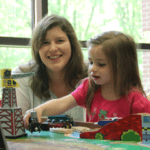 Jennifer M. Zosh, Ph.D., is an Associate Professor of Human Development and Family Studies at The Pennsylvania State University’s Brandywine campus. As the Director of the Brandywine Child Development Lab, she studies how infants and young children learn about the world around them. Her areas of expertise and publication include playful learning, the impact of technology on children, working memory, mathematical cognition, and language acquisition. Notably, she was co-lead author on a recent (2015) publication in Psychological Science in the Public Interest about putting education back in educational apps through the application of research in the science of how children learn. She presents regularly at professional meetings including: the Society for Research in Child Development, International Congress on Infant Studies, National Academy of Sciences Children and Screens colloquium, International Mind Brain and Education Society, and others. A major driving force in her career is dissemination and translation of scientific discoveries to the public via blogging and media appearances. This translational work has appeared on The Conversation, PBS Parents, The Huffington Post, the Brookings Institution, the Joan Ganz Cooney Center, NPR Radio Times, and beyond. She is also involved in the dissemination of developmental research through her involvement with Living Laboratories embedded in children’s museums and her roles on advisory boards for organizations (e.g., Ultimate Block Party, Urban ThinkScape). She received her bachelors degree in Psychology from the University of Delaware and her Ph.D. in Psychological and Brain Sciences from Johns Hopkins University.
Jennifer M. Zosh, Ph.D., is an Associate Professor of Human Development and Family Studies at The Pennsylvania State University’s Brandywine campus. As the Director of the Brandywine Child Development Lab, she studies how infants and young children learn about the world around them. Her areas of expertise and publication include playful learning, the impact of technology on children, working memory, mathematical cognition, and language acquisition. Notably, she was co-lead author on a recent (2015) publication in Psychological Science in the Public Interest about putting education back in educational apps through the application of research in the science of how children learn. She presents regularly at professional meetings including: the Society for Research in Child Development, International Congress on Infant Studies, National Academy of Sciences Children and Screens colloquium, International Mind Brain and Education Society, and others. A major driving force in her career is dissemination and translation of scientific discoveries to the public via blogging and media appearances. This translational work has appeared on The Conversation, PBS Parents, The Huffington Post, the Brookings Institution, the Joan Ganz Cooney Center, NPR Radio Times, and beyond. She is also involved in the dissemination of developmental research through her involvement with Living Laboratories embedded in children’s museums and her roles on advisory boards for organizations (e.g., Ultimate Block Party, Urban ThinkScape). She received her bachelors degree in Psychology from the University of Delaware and her Ph.D. in Psychological and Brain Sciences from Johns Hopkins University.
 Jeremy E. Sawyer, Ph.D., is a postdoctoral fellow with Kathy Hirsh-Pasek at Temple University. He leads the development of the Philadelphia Playful Learning City project, which transforms Philadelphia’s urban public spaces to encourage playful learning and enrich communication between children and caregivers. Jeremy examines early childhood development in educational and community contexts, particularly the benefits of playful pedagogy and playful learning for children’s motivation, cognition, and language. His areas of expertise include sociodramatic play, private speech (self-talk), and bilingualism. Jeremy is a certified bilingual (Spanish/English) school psychologist who worked in New York City’s public schools, and he investigates how bilinguals’ private speech contributes to emerging bilingual cognitive advantages. Jeremy is committed to using psychology to improve social conditions, and his work on how Black Lives Matter reduced implicit racial bias in the U.S. has been covered in Pacific Standard.
Jeremy E. Sawyer, Ph.D., is a postdoctoral fellow with Kathy Hirsh-Pasek at Temple University. He leads the development of the Philadelphia Playful Learning City project, which transforms Philadelphia’s urban public spaces to encourage playful learning and enrich communication between children and caregivers. Jeremy examines early childhood development in educational and community contexts, particularly the benefits of playful pedagogy and playful learning for children’s motivation, cognition, and language. His areas of expertise include sociodramatic play, private speech (self-talk), and bilingualism. Jeremy is a certified bilingual (Spanish/English) school psychologist who worked in New York City’s public schools, and he investigates how bilinguals’ private speech contributes to emerging bilingual cognitive advantages. Jeremy is committed to using psychology to improve social conditions, and his work on how Black Lives Matter reduced implicit racial bias in the U.S. has been covered in Pacific Standard.
 Nabil Shahidi is an architect and designer practicing in New York City and globally. He is interested in the intersection of architectural design and human development. He founded an award-winning design studio in Dhaka, Bangladesh where he designed eco-resorts, urban revitalisation projects, and a university masterplan. He has also designed airports, research laboratories, and hotels in New York City during his tenure at Rafael Vinoly Architects. He graduated from the Graduate School of Architecture, Planning and Preservation from Columbia University and he currently works for COOKFOX Architects in New York City.
Nabil Shahidi is an architect and designer practicing in New York City and globally. He is interested in the intersection of architectural design and human development. He founded an award-winning design studio in Dhaka, Bangladesh where he designed eco-resorts, urban revitalisation projects, and a university masterplan. He has also designed airports, research laboratories, and hotels in New York City during his tenure at Rafael Vinoly Architects. He graduated from the Graduate School of Architecture, Planning and Preservation from Columbia University and he currently works for COOKFOX Architects in New York City.


